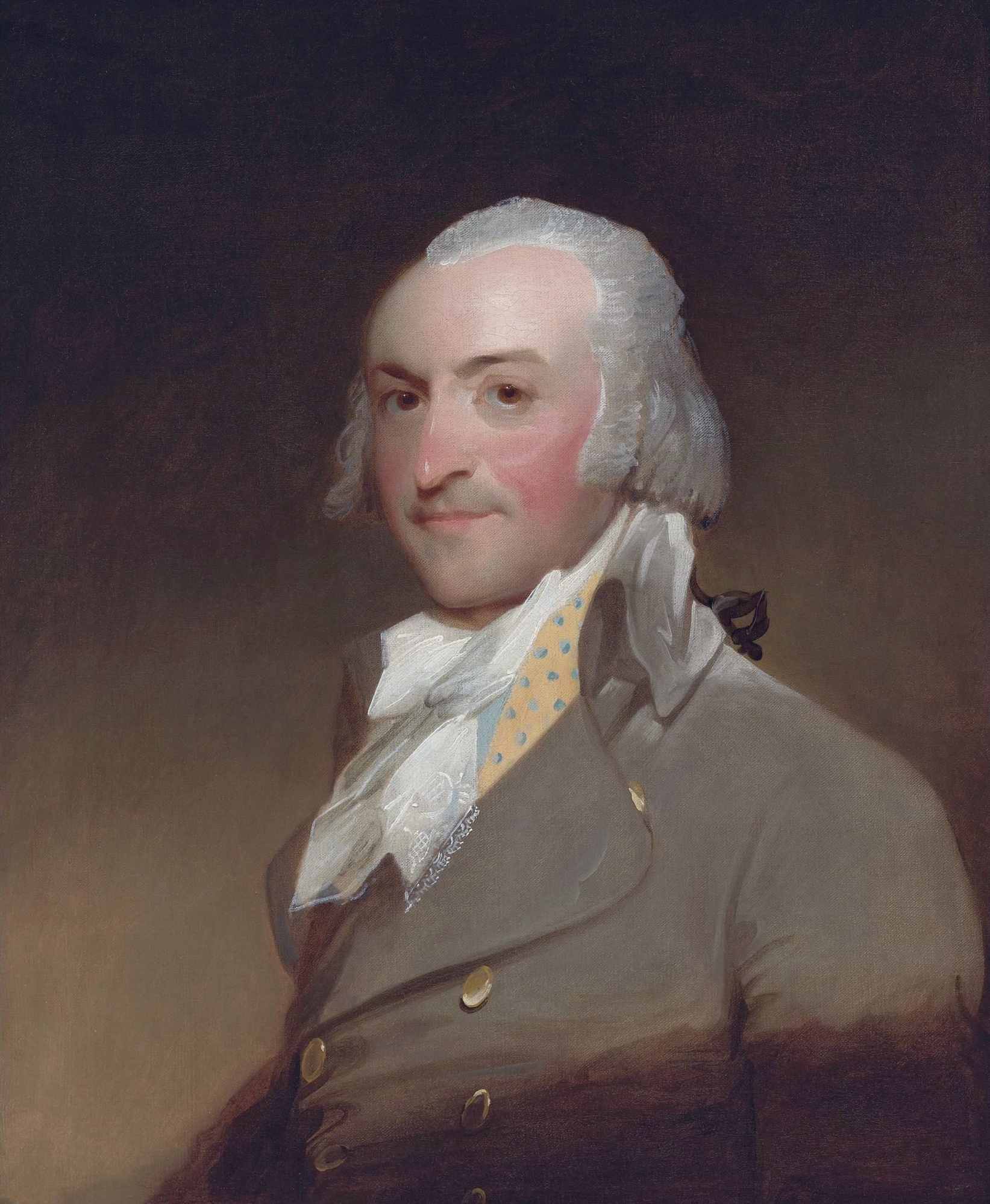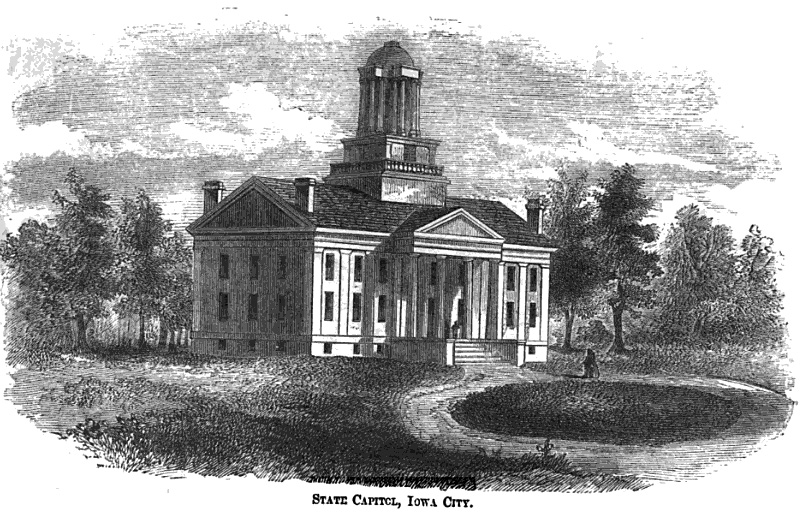|
Calvin Ziegler
Charles Calvin Ziegler (1854–1930) was a German-American poet from Rebersburg, Pennsylvania. His native language was Pennsylvania Dutch, and although he learned English in school, he wrote his poetry in the Pennsylvania Dutch language. He is said to have been the most accomplished poet to write in that language, and may have written the only Pennsylvania Dutch sonnet on record.Reichard, Harry Hess. Pennsylvania-German Dialect Writings and Their Writers: A Paper Prepared at the Request of the Pennsylvania-German Society', pp. 303-312. Lancaster, Pennsylvania: Pennsylvania-German Society, 1918. Background Ziegler was born on a farm to a 39-year-old mother and an even older father. He had at least one older brother, Samuel, who moved to Iowa when Calvin was still young. When he was sixteen, Calvin went to join Samuel, eventually graduating the University of Iowa in 1878. He returned to Rebersburg and pursued teaching, but left again in October 1881 to study Greek and Latin at ... [...More Info...] [...Related Items...] OR: [Wikipedia] [Google] [Baidu] |
German-American
German Americans (german: Deutschamerikaner, ) are Americans who have full or partial German ancestry. With an estimated size of approximately 43 million in 2019, German Americans are the largest of the self-reported ancestry groups by the United States Census Bureau in its American Community Survey. German Americans account for about one third of the total population of people of German ancestry in the world. Very few of the German states had colonies in the new world. In the 1670s, the first significant groups of German immigrants arrived in the British colonies, settling primarily in Pennsylvania, New York and Virginia. The Mississippi Company of France moved thousands of Germans from Europe to Louisiana and to the German Coast, Orleans Territory between 1718 and 1750. Immigration ramped up sharply during the 19th century. There is a "German belt" that extends all the way across the United States, from eastern Pennsylvania to the Oregon coast. Pennsylvania, with 3.5 millio ... [...More Info...] [...Related Items...] OR: [Wikipedia] [Google] [Baidu] |
Leipzig
Leipzig ( , ; Upper Saxon: ) is the most populous city in the German state of Saxony. Leipzig's population of 605,407 inhabitants (1.1 million in the larger urban zone) as of 2021 places the city as Germany's eighth most populous, as well as the second most populous city in the area of the former East Germany after (East) Berlin. Together with Halle (Saale), the city forms the polycentric Leipzig-Halle Conurbation. Between the two cities (in Schkeuditz) lies Leipzig/Halle Airport. Leipzig is located about southwest of Berlin, in the southernmost part of the North German Plain (known as Leipzig Bay), at the confluence of the White Elster River (progression: ) and two of its tributaries: the Pleiße and the Parthe. The name of the city and those of many of its boroughs are of Slavic origin. Leipzig has been a trade city since at least the time of the Holy Roman Empire. The city sits at the intersection of the Via Regia and the Via Imperii, two important medieval trad ... [...More Info...] [...Related Items...] OR: [Wikipedia] [Google] [Baidu] |
Harvard College Alumni
The list of Harvard University people includes notable graduates, professors, and administrators affiliated with Harvard University. For a list of notable non-graduates of Harvard, see notable non-graduate alumni of Harvard. For a list of Harvard's presidents, see President of Harvard University. Eight Presidents of the United States have graduated from Harvard University: John Adams, John Quincy Adams, Rutherford B. Hayes, John F. Kennedy, Franklin Delano Roosevelt, Theodore Roosevelt, George W. Bush, and Barack Obama. Bush graduated from Harvard Business School, Hayes and Obama from Harvard Law School, and the others from Harvard College. Over 150 Nobel Prize winners have been associated with the university as alumni, researchers or faculty. Nobel laureates Pulitzer Prize winners ... [...More Info...] [...Related Items...] OR: [Wikipedia] [Google] [Baidu] |
University Of Iowa Alumni
A university () is an institution of higher (or tertiary) education and research which awards academic degrees in several academic disciplines. Universities typically offer both undergraduate and postgraduate programs. In the United States, the designation is reserved for colleges that have a graduate school. The word ''university'' is derived from the Latin ''universitas magistrorum et scholarium'', which roughly means "community of teachers and scholars". The first universities were created in Europe by Catholic Church monks. The University of Bologna (''Università di Bologna''), founded in 1088, is the first university in the sense of: *Being a high degree-awarding institute. *Having independence from the ecclesiastic schools, although conducted by both clergy and non-clergy. *Using the word ''universitas'' (which was coined at its foundation). *Issuing secular and non-secular degrees: grammar, rhetoric, logic, theology, canon law, notarial law.Hunt Janin: "The university i ... [...More Info...] [...Related Items...] OR: [Wikipedia] [Google] [Baidu] |
Poets From Pennsylvania
A poet is a person who studies and creates poetry. Poets may describe themselves as such or be described as such by others. A poet may simply be the creator ( thinker, songwriter, writer, or author) who creates (composes) poems ( oral or written), or they may also perform their art to an audience. The work of a poet is essentially one of communication, expressing ideas either in a literal sense (such as communicating about a specific event or place) or metaphorically. Poets have existed since prehistory, in nearly all languages, and have produced works that vary greatly in different cultures and periods. Throughout each civilization and language, poets have used various styles that have changed over time, resulting in countless poets as diverse as the literature that (since the advent of writing systems) they have produced. History In Ancient Rome, professional poets were generally sponsored by patrons, wealthy supporters including nobility and military officia ... [...More Info...] [...Related Items...] OR: [Wikipedia] [Google] [Baidu] |
1930 Deaths
Year 193 ( CXCIII) was a common year starting on Monday (link will display the full calendar) of the Julian calendar. At the time, it was known as the Year of the Consulship of Sosius and Ericius (or, less frequently, year 946 ''Ab urbe condita''). The denomination 193 for this year has been used since the early medieval period, when the Anno Domini calendar era became the prevalent method in Europe for naming years. Events By place Roman Empire * January 1 – Year of the Five Emperors: The Roman Senate chooses Publius Helvius Pertinax, against his will, to succeed the late Commodus as Emperor. Pertinax is forced to reorganize the handling of finances, which were wrecked under Commodus, to reestablish discipline in the Roman army, and to suspend the food programs established by Trajan, provoking the ire of the Praetorian Guard. * March 28 – Pertinax is assassinated by members of the Praetorian Guard, who storm the imperial palace. The Empire is auctioned of ... [...More Info...] [...Related Items...] OR: [Wikipedia] [Google] [Baidu] |
1854 Births
Events January–March * January 4 – The McDonald Islands are discovered by Captain William McDonald aboard the ''Samarang''. * January 6 – The fictional detective Sherlock Holmes is perhaps born. * January 9 – The Teutonia Männerchor in Pittsburgh, U.S.A. is founded to promote German culture. * January 20 – The North Carolina General Assembly in the United States charters the Atlantic and North Carolina Railroad, to run from Goldsboro through New Bern, to the newly created seaport of Morehead City, near Beaufort. * January 21 – The iron clipper runs aground off the east coast of Ireland, on her maiden voyage out of Liverpool, bound for Australia, with the loss of at least 300 out of 650 on board. * February 11 – Major streets are lit by coal gas for the first time by the San Francisco Gas Company; 86 such lamps are turned on this evening in San Francisco, California. * February 13 – Mexican troops force William Wa ... [...More Info...] [...Related Items...] OR: [Wikipedia] [Google] [Baidu] |
Harvard
Harvard University is a private Ivy League research university in Cambridge, Massachusetts. Founded in 1636 as Harvard College and named for its first benefactor, the Puritan clergyman John Harvard, it is the oldest institution of higher learning in the United States and one of the most prestigious and highly ranked universities in the world. The university is composed of ten academic faculties plus Harvard Radcliffe Institute. The Faculty of Arts and Sciences offers study in a wide range of undergraduate and graduate academic disciplines, and other faculties offer only graduate degrees, including professional degrees. Harvard has three main campuses: the Cambridge campus centered on Harvard Yard; an adjoining campus immediately across Charles River in the Allston neighborhood of Boston; and the medical campus in Boston's Longwood Medical Area. Harvard's endowment is valued at $50.9 billion, making it the wealthiest academic institution in the world. Endowment inco ... [...More Info...] [...Related Items...] OR: [Wikipedia] [Google] [Baidu] |
Pennsylvania Dutch (language)
Pennsylvania Dutch (, or ), referred to as Pennsylvania German in scholarly literature, is a variety of Palatine German, also known as Palatine Dutch, spoken by the Old Order Amish, Old Order Mennonites, Fancy Dutch, and other descendants of German immigrants in the United States and Canada. There are possibly more than 300,000 native speakers of Pennsylvania Dutch in the United States and Canada. It has traditionally been the dialect of the Pennsylvania Dutch, descendants of late 17th- and early to late 18th-century immigrants to Pennsylvania, Maryland, Virginia, West Virginia, and North Carolina primarily from Southern Germany and, less so, from the eastern France regions of Alsace and Lorraine, and parts of Switzerland. Although the term Pennsylvania Dutch is often taken to refer to the Amish and related Old Order groups, it does not imply a connection to any particular religious group. The word Dutch does not refer to the Dutch language or people, but is derived from the ... [...More Info...] [...Related Items...] OR: [Wikipedia] [Google] [Baidu] |
University Of Iowa
The University of Iowa (UI, U of I, UIowa, or simply Iowa) is a public university, public research university in Iowa City, Iowa, United States. Founded in 1847, it is the oldest and largest university in the state. The University of Iowa is organized into 12 colleges offering more than 200 areas of study and seven professional degrees. On an urban 1,880-acre campus on the banks of the Iowa River, the University of Iowa is Carnegie Classification of Institutions of Higher Education, classified among "R1: Doctoral Universities – Very high research activity". In fiscal year 2021, research expenditures at Iowa totaled $818 million. The university is best known for its programs in health care, law, and the fine arts, with programs ranking among the top 25 nationally in those areas. The university was the original developer of the Master of Fine Arts degree and it operates the Iowa Writers' Workshop, which has produced 17 of the university's 46 Pulitzer Prize winners. Iowa is a mem ... [...More Info...] [...Related Items...] OR: [Wikipedia] [Google] [Baidu] |
Iowa
Iowa () is a state in the Midwestern region of the United States, bordered by the Mississippi River to the east and the Missouri River and Big Sioux River to the west. It is bordered by six states: Wisconsin to the northeast, Illinois to the east and southeast, Missouri to the south, Nebraska to the west, South Dakota to the northwest, and Minnesota to the north. During the 18th and early 19th centuries, Iowa was a part of French Louisiana and Spanish Louisiana; its state flag is patterned after the flag of France. After the Louisiana Purchase, people laid the foundation for an agriculture-based economy in the heart of the Corn Belt. In the latter half of the 20th century, Iowa's agricultural economy transitioned to a diversified economy of advanced manufacturing, processing, financial services, information technology, biotechnology, and green energy production. Iowa is the 26th most extensive in total area and the 31st most populous of the 50 U.S. states, with a populat ... [...More Info...] [...Related Items...] OR: [Wikipedia] [Google] [Baidu] |





